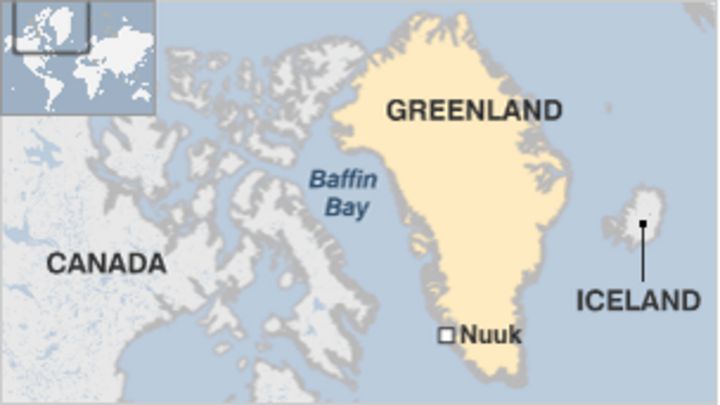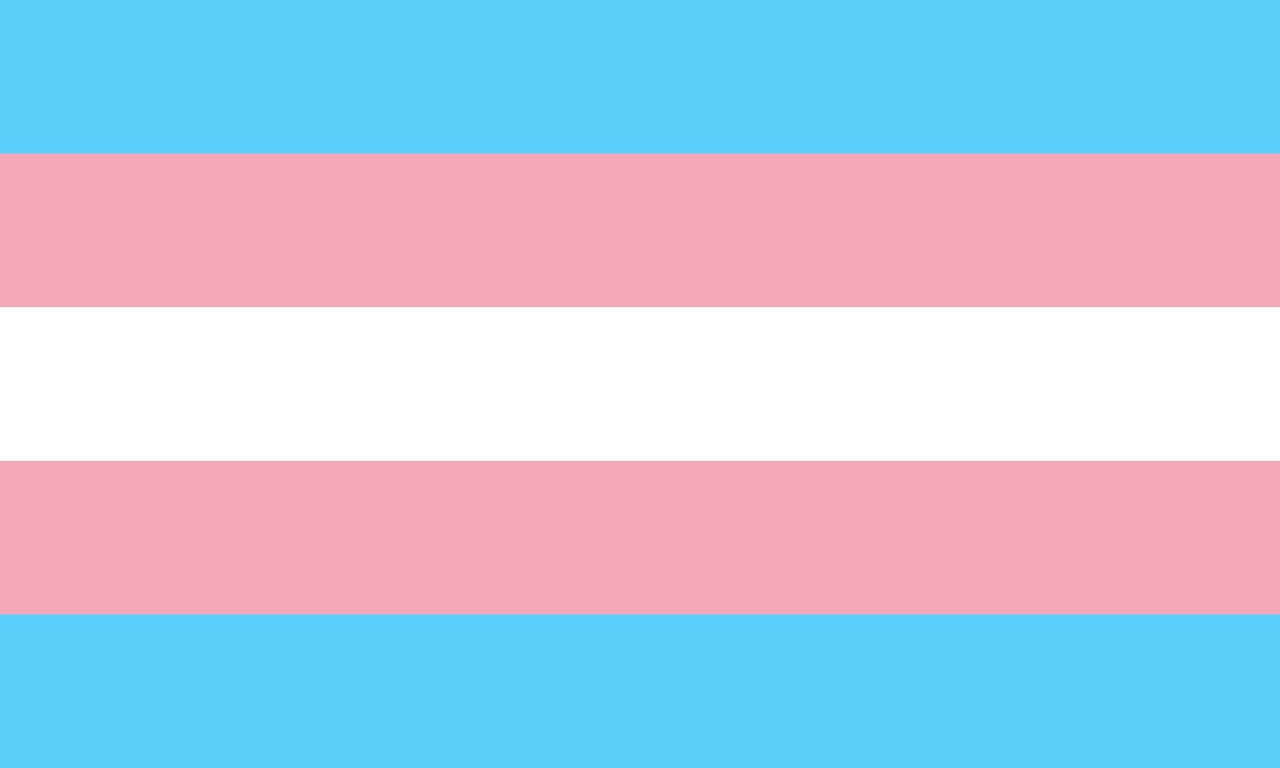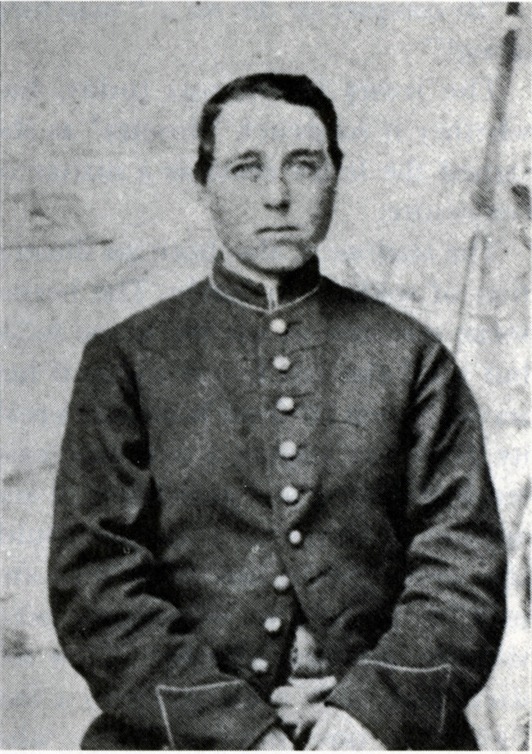You wouldn't think that Greenland would have been a source of contention during World War II. While Greenland may be the world's largest island, it's sparsely inhabited, freezing cold, and just not a big player in world affairs. Quite frankly, Greenland's pretty unprepossessing. However, control of the island was heavily contested between the United States and Germany during the first half of the 1940s.
Greenland has been a Danish colony since 1814, and is still a part of Denmark. While Greenland is largely self-governing today, in the 1940s the island was under the strict control of the Danish government, specifically the two Danish governors--Aksel Svane and Eske Brun. These men answered directly to the government in Copenhagen, but were also responsible for representing the interests of Greenland. This left them in a bit of a bind when the Nazi's took control of Denmark in April of 1940.
While the Danish government was nominally in charge of their country, they took their orders from the Germans, especially where foreign policy was concerned. Formerly neutral, Denmark was dragged into the war, and Greenland wasn't too keen on being dragged along with them. The Danish government in Copenhagen no longer represented Greenland's interests, and Greenland didn't feel particularly loyal to the Nazi puppet government. So, drawing on previous legislation, the governors declared Greenland to be a self-ruling country, free ofNazi Danish law.
As might be expected, Nazi controlled Denmark, wasn't too pleased about the Greenlander's getting uppity. Though unprepossessing, Greenland was important to the Germans, and they hadn't anticipated a fight. Greenland was essential to Nazi plans in North America and Europe for several reasons, namely:
While the United States later went on to be a major player in WWII, in 1941 they were maintaining a strict stance of absolute neutrality, a stance that Greenland was 100% down for. Because of Greenland's position politically and physically, it was advantageous for Greenland to seek help from the United States, and it was advantageous for the US to help them.
 Against explicit orders from Copenhagen, Danish ambassador Henrik Kauffman, in the name of King Christian X,officially signed a treaty with the United States in April of 1941, giving the US full authority to station troops and build military bases in Greenland for mutual defense purposes.
Against explicit orders from Copenhagen, Danish ambassador Henrik Kauffman, in the name of King Christian X,officially signed a treaty with the United States in April of 1941, giving the US full authority to station troops and build military bases in Greenland for mutual defense purposes.
Kauffman was widely condemned in Copenhagen, and his treaty with the United States was denounced as treason. Kauffman had, essentially, allowed US military to set up shop on Danish land, and the Danes weren't too keen on this. However, there wasn't any real backlash for this 'treason'. The condemnation came from the German controlled Danish parliament, and did not reflect the feelings of the actual Danish parliament. Kauffman made it known that he was acting on behalf of King Christian X and the true Danish government, and experienced no consequences for signing a treaty with the US during or after the war.
Now, people familiar with the United States Constitution might say that the occupation of a colony of a foreign nation seems very contrary to the principles of the United States. The US had sworn not to have colonies (though they sometimes flirted with that line), and not to invade foreign countries for their own land gain. Everything they did in Greenland seems contrary to that. However, the United States had one major out--The Monroe Doctrine.
The Monroe Doctrine was a statement released in 1823 by US president James Monroe. This singularly arrogant document was put out after most of the Latin American countries had gained independence from Spain, and stated that the United States would fight any European power that tried to intervene in the Americas. The doctrine was considered to mostly protect the countries south and east of the United States. For years Greenland hadn't really been a concern where the Monroe Doctrine was concerned, because for all intents and purposes Greenland was part of Europe. However, in order to justify their interference in Greenland, the US declared Greenland part of North America, and told the Germans, Canadians, British and Norwegians to piss off.
Once they made the decision to go to Greenland, the US had to walk a fine line. They were still maintaining a policy of neutrality, and couldn't send armed forces because of the possibilities of clashing with the Nazis and inadvertently drawing themselves into the war. To circumvent this, the United States sent their coast guard to protect Greenland.
Once there, the coast guard spent most of their time patrolling Greenland's shores, and keeping an eye out for more Germans trying to establish weather bases. Along with patrolling, they also built two military bases-- Bluie West 1 and Bluie West 8, as well roads and improved harbors.
This arrangement was particularly advantageous for Greenland, because not only did they get new roads and improved infrastructure, but the United States was also leasing the land that they were building on. Greenland was being paid for the land that the US was so helpfully developing. At the end of the war, Greenland was left with some decent roads--and they hadn't paid for any of it.
However, don't imagine that the Greenlanders just sat back and let the United States do all the work. Svane and Brun were adamant that Greenlanders should be helping in the defense of their nation, so they established the Sledge Patrol--a group of 15 men who patrolled the northern and most remote reaches of Greenland by dogsled. The Sledge Patrol more than pulled their weight. They found several German weather stations, and had multiple skirmishes with the German soldiers. After driving out and capturing one group of German soldiers, the Sledge Patrol was declared the 'Army of Greenland'. To this day, the Sledge Patrol is an elite part of the Danish Armed Forces.
When the United States entered the war in late 1941, Greenland officially entered the war as well. Greenland's entrance into the war wasn't particularly significant; for the most part, Greenland continued doing what it was already doing, rebuffing German attempts to build weather stations.
After the war, Greenland went back to being a Danish colony. However, relations between Denmark and her colony had dramatically changed. The Danes had always had the goal of eventually giving Greenland self rule and independence, but before WWII they were unconvinced that the Greenlanders could govern themselves. The events of the 1940s changed that, and in the 21st century Denmark granted Greenland home rule and their own parliament.
While Greenland may not have played an enormous part in WWII, it's undeniable that they were incredibly brave. For a sparsely inhabited, mostly undefended nation to openly defy the Nazis, risking their lives and sovereignty to maintain their own independence was admirable. Greenland had a lot to lose, but through a series of smart diplomatic decisions they survived WWII mostly unscathed.
¹I'm not 'That Geology Nerd' either, so I don't entirely understand how Cryolite works, but you can find more information here.
Sources
FDR Sends Troops to Occupy Greenland
Greenland During and Since the Second World War
Greenland's War
Greenland During WWII
 |
| Uummannaq, Greenland |
While the Danish government was nominally in charge of their country, they took their orders from the Germans, especially where foreign policy was concerned. Formerly neutral, Denmark was dragged into the war, and Greenland wasn't too keen on being dragged along with them. The Danish government in Copenhagen no longer represented Greenland's interests, and Greenland didn't feel particularly loyal to the Nazi puppet government. So, drawing on previous legislation, the governors declared Greenland to be a self-ruling country, free of
As might be expected, Nazi controlled Denmark, wasn't too pleased about the Greenlander's getting uppity. Though unprepossessing, Greenland was important to the Germans, and they hadn't anticipated a fight. Greenland was essential to Nazi plans in North America and Europe for several reasons, namely:
 |
| Cryolite |
- Like much of the arctic Western Hemisphere, Greenland was a good launching place for air invasions. It would be an easily defensible and convenient place to build an air base that could launch attacks on Europe and North America.
- Both the Axis and the Allies wanted to establish weather stations on Greenland. I'm not 'That Meteorology Nerd', so I don't pretend to understand this, but apparently all the weather headed for Europe goes through Greenland. Prior knowledge of the weather was important for strategic planning, and the Germans wanted that knowledge.
- At the time Greenland had the world's largest supply of cryolite, a rare and important mineral used in making aluminum¹. Whoever possessed the cryolite mines would have a serious leg up when it came to manufacturing aircraft. Greenland wasn't making their own aircraft, and their cryolite was coveted not only by the Germans, but by the British and Norwegians as well.
While the United States later went on to be a major player in WWII, in 1941 they were maintaining a strict stance of absolute neutrality, a stance that Greenland was 100% down for. Because of Greenland's position politically and physically, it was advantageous for Greenland to seek help from the United States, and it was advantageous for the US to help them.
 Against explicit orders from Copenhagen, Danish ambassador Henrik Kauffman, in the name of King Christian X,officially signed a treaty with the United States in April of 1941, giving the US full authority to station troops and build military bases in Greenland for mutual defense purposes.
Against explicit orders from Copenhagen, Danish ambassador Henrik Kauffman, in the name of King Christian X,officially signed a treaty with the United States in April of 1941, giving the US full authority to station troops and build military bases in Greenland for mutual defense purposes.Kauffman was widely condemned in Copenhagen, and his treaty with the United States was denounced as treason. Kauffman had, essentially, allowed US military to set up shop on Danish land, and the Danes weren't too keen on this. However, there wasn't any real backlash for this 'treason'. The condemnation came from the German controlled Danish parliament, and did not reflect the feelings of the actual Danish parliament. Kauffman made it known that he was acting on behalf of King Christian X and the true Danish government, and experienced no consequences for signing a treaty with the US during or after the war.
Now, people familiar with the United States Constitution might say that the occupation of a colony of a foreign nation seems very contrary to the principles of the United States. The US had sworn not to have colonies (though they sometimes flirted with that line), and not to invade foreign countries for their own land gain. Everything they did in Greenland seems contrary to that. However, the United States had one major out--The Monroe Doctrine.
The Monroe Doctrine was a statement released in 1823 by US president James Monroe. This singularly arrogant document was put out after most of the Latin American countries had gained independence from Spain, and stated that the United States would fight any European power that tried to intervene in the Americas. The doctrine was considered to mostly protect the countries south and east of the United States. For years Greenland hadn't really been a concern where the Monroe Doctrine was concerned, because for all intents and purposes Greenland was part of Europe. However, in order to justify their interference in Greenland, the US declared Greenland part of North America, and told the Germans, Canadians, British and Norwegians to piss off.
 |
| Bluie West One |
Once there, the coast guard spent most of their time patrolling Greenland's shores, and keeping an eye out for more Germans trying to establish weather bases. Along with patrolling, they also built two military bases-- Bluie West 1 and Bluie West 8, as well roads and improved harbors.
This arrangement was particularly advantageous for Greenland, because not only did they get new roads and improved infrastructure, but the United States was also leasing the land that they were building on. Greenland was being paid for the land that the US was so helpfully developing. At the end of the war, Greenland was left with some decent roads--and they hadn't paid for any of it.
However, don't imagine that the Greenlanders just sat back and let the United States do all the work. Svane and Brun were adamant that Greenlanders should be helping in the defense of their nation, so they established the Sledge Patrol--a group of 15 men who patrolled the northern and most remote reaches of Greenland by dogsled. The Sledge Patrol more than pulled their weight. They found several German weather stations, and had multiple skirmishes with the German soldiers. After driving out and capturing one group of German soldiers, the Sledge Patrol was declared the 'Army of Greenland'. To this day, the Sledge Patrol is an elite part of the Danish Armed Forces.
 |
| Sledge Patrol camp |
When the United States entered the war in late 1941, Greenland officially entered the war as well. Greenland's entrance into the war wasn't particularly significant; for the most part, Greenland continued doing what it was already doing, rebuffing German attempts to build weather stations.
After the war, Greenland went back to being a Danish colony. However, relations between Denmark and her colony had dramatically changed. The Danes had always had the goal of eventually giving Greenland self rule and independence, but before WWII they were unconvinced that the Greenlanders could govern themselves. The events of the 1940s changed that, and in the 21st century Denmark granted Greenland home rule and their own parliament.
While Greenland may not have played an enormous part in WWII, it's undeniable that they were incredibly brave. For a sparsely inhabited, mostly undefended nation to openly defy the Nazis, risking their lives and sovereignty to maintain their own independence was admirable. Greenland had a lot to lose, but through a series of smart diplomatic decisions they survived WWII mostly unscathed.
¹I'm not 'That Geology Nerd' either, so I don't entirely understand how Cryolite works, but you can find more information here.
FDR Sends Troops to Occupy Greenland
Greenland During and Since the Second World War
Greenland's War
Greenland During WWII




